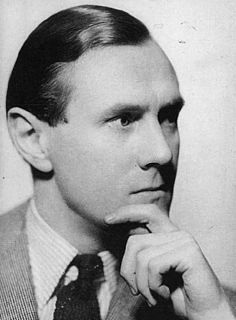A Quote by Oliver Goldsmith
It is impossible to combat enthusiasm with reason; for though it makes a show of resistance, it soon eludes the pressure, refers you to distinctions not to be understood, and feelings which it cannot explain. A man who would endeavor to fix an enthusiast by argument might as well attempt to spread quicksilver with his finger.
Related Quotes
It is an absolutely vain endeavor to attempt to reconstruct or even comprehend the nature of a human being by simply knowing the forces which have acted upon him. However deeply we should like to penetrate, however close we seem to be drawing to truth, one unknown quantity eludes us: man's primordial energy, his original self, that personality which was given him with the gift of life itself. On it rests man's true freedom; it alone determines his real character.
The cause of Sense, is the External Body, or Object, which presseth the organ proper to each Sense, either immediately, as in theTaste and Touch; or mediately, as in Seeing, Hearing, and Smelling: which pressure, by the mediation of Nerves, and other strings, and membranes of the body, continued inwards to the Brain, and Heart, causeth there a resistance, or counter- pressure, or endeavor of the heart, to deliver it self: which endeavor because Outward, seemeth to be some matter without.
One of man's important mistakes, one which must be remembered, is his illusion in regard to his I. Man such as we know him, the 'man-machine,' the man who cannot 'do,' and with whom and through whom everything 'happens,' cannot have a permanent and single I. His I changes as quickly as his thoughts, feelings and moods, and he makes a profound mistake in considering himself always one and the same person; in reality he is always a different person, not the one he was a moment ago.
Ruskin's much-derided moral theory of art was part of an attempt to show that this human activity, which we value so highly, engaged the whole of human personality. His insistence on the sanctity of nature was part of an attempt to develop Goethe's intuition that form cannot be put together in the mind by an additive process, but is to be deduced from the laws of growth in living organisms, and their resistance to the elements.
The man who cannot listen to an argument which opposes his views either has a weak position or is a weak defender of it. No opinion that cannot stand discussion or criticism is worth holding. And it has been wisely said that the man who knows only half of any question is worse off than the man who knows nothing of it. He is not only one-sided but his partisanship soon turns him into an intolerant and a fanatic. In general it is true that nothing which cannot stand up under discussion or criticism is worth defending.
Faith is the commitment of one's consciousness to beliefs for which one has no sensory evidence or rational proof. When man rejects reason as his standard of judgement, only one alternative standard remains to him: his feelings. A mystic is a man who treats his feelings as tools of cognition. Faith is the equation of feelings with knowledge
Dawkins’s problem is that he doesn’t know the difference between probabilistic empirical theorizing and strict metaphysical demonstration, and thus misreads an attempt at the latter as if it were the former. That is not to say that Aquinas might not be mistaken at some point in the argument – though obviously I don’t think he is – but if you’re going to show that he is, you first need to understand what kind of argument he is giving, and thus what kind of mistake he’d be making if he’s made one at all.
To teach effectively a teacher must develop a feeling for his subject; he cannot make his students sense its vitality if he does not sense it himself. He cannot share his enthusiasm when he has no enthusiasm to share. How he makes his point may be as important as the point he makes; he must personally feel it to be important.
I discovered several never-failing signs by which one might know when a man wished to take another wife. He would suddenly 'awaken to a sense of his duties'; he would have serious misgiving as to whether the Lord would pardon his neglect in not living up to his privileges; he would become very religious, and would attend to his meetings ... which seemed just then to be very numerous, and in various other ways he would show his anxiety to live up to his religion.
Pascal makes no attempt in this most famous argument to show that his Roman Catholicism is true or probably true. The reasons which he suggests for making the recommended bet on his particular faith are reasons in the sense of motives rather than reasons in the sense of grounds. Conceding, if only for the sake of the present argument, that we can have no knowledge here, Pascal tries to justify as prudent a policy of systematic self-persuasion, rather than to provide grounds for thinking that the beliefs recommended are actually true.







































